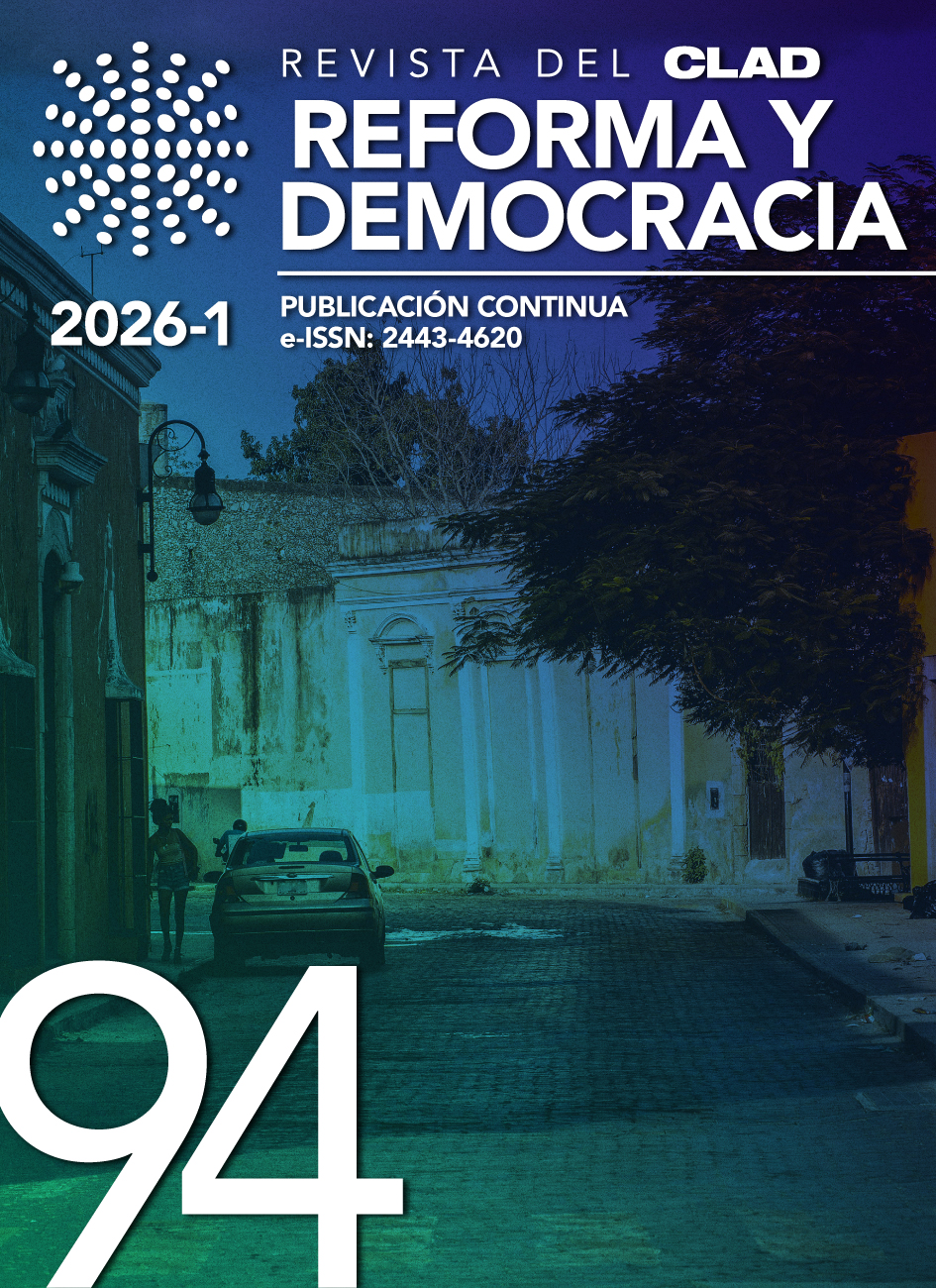Highlights
La Revista del CLAD Reforma y Democracia está dedicada a fomentar el diálogo e intercambio de ideas para avanzar en la comprensión de las relaciones Estado-Sociedad, y a divulgar propuestas y alternativas para orientar las transformaciones necesarias en la Administración Pública.
Es una propuesta del sur global para el mundo, y asegura su disponibilidad a través del acceso abierto y la publicación continua. Nuestros artículos son evaluados bajo la modalidad de “doble ciego”, garantizando el anonimato de autoras/es y evaluadoras/es. La revista es una publicación cuatrimestral, en tres idiomas: español, portugués e inglés, y se publica en formato digital.
Current Issue
No. 94 (2026)




